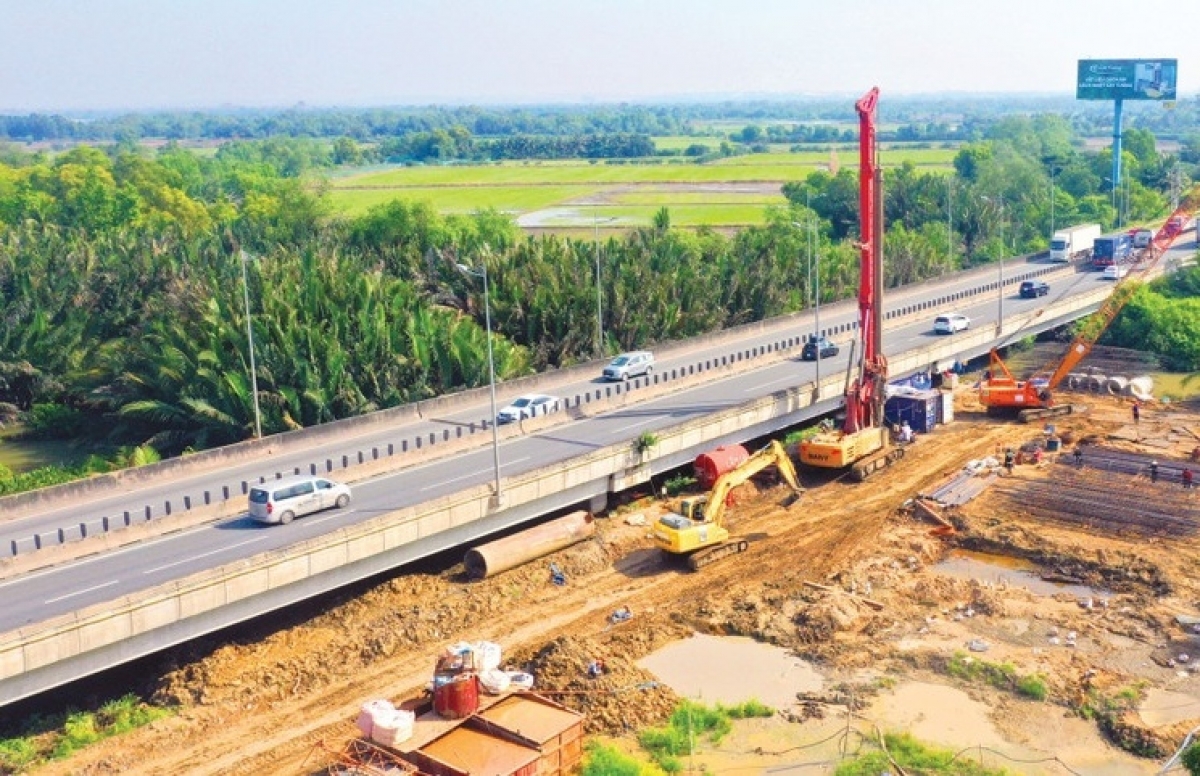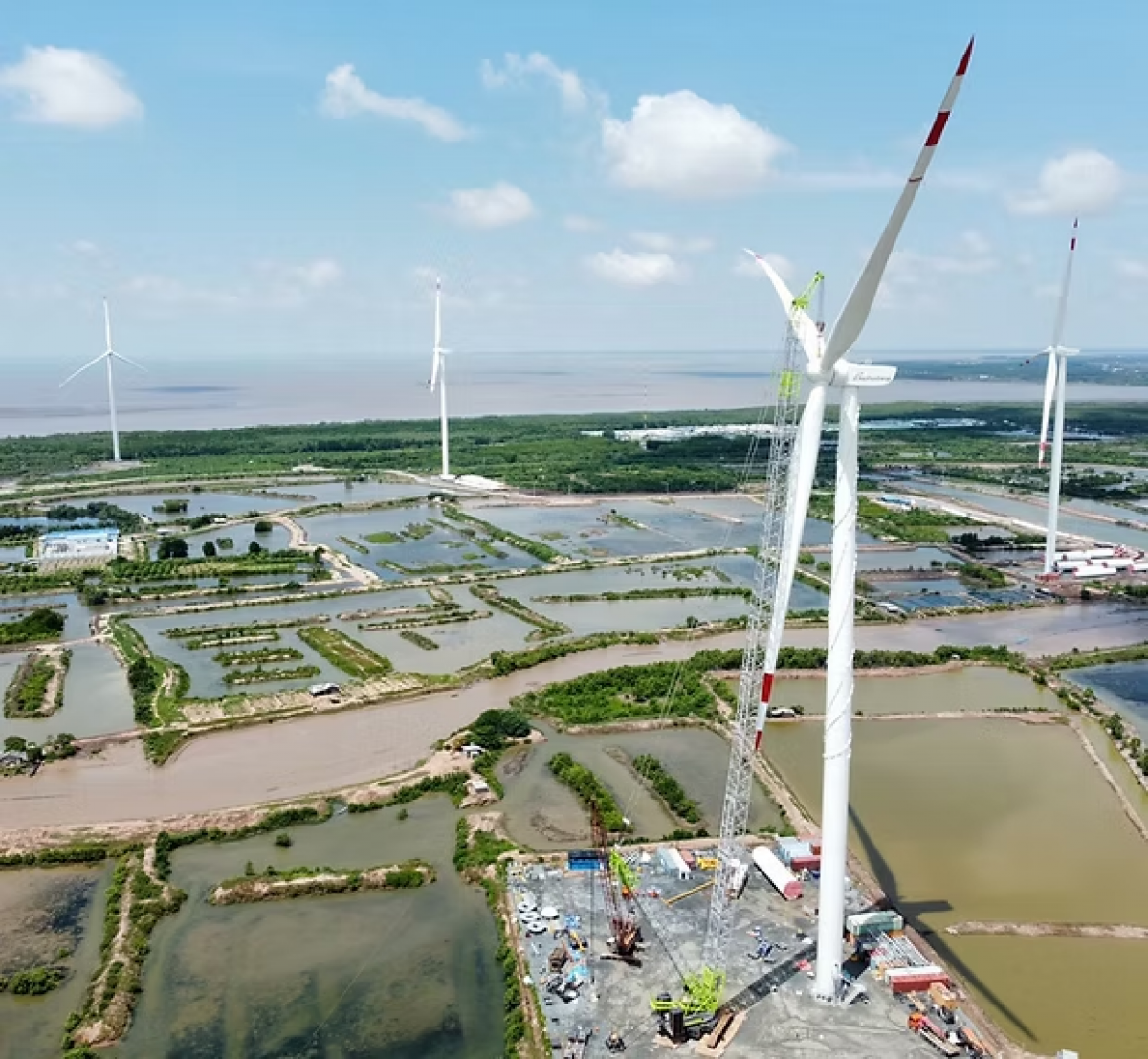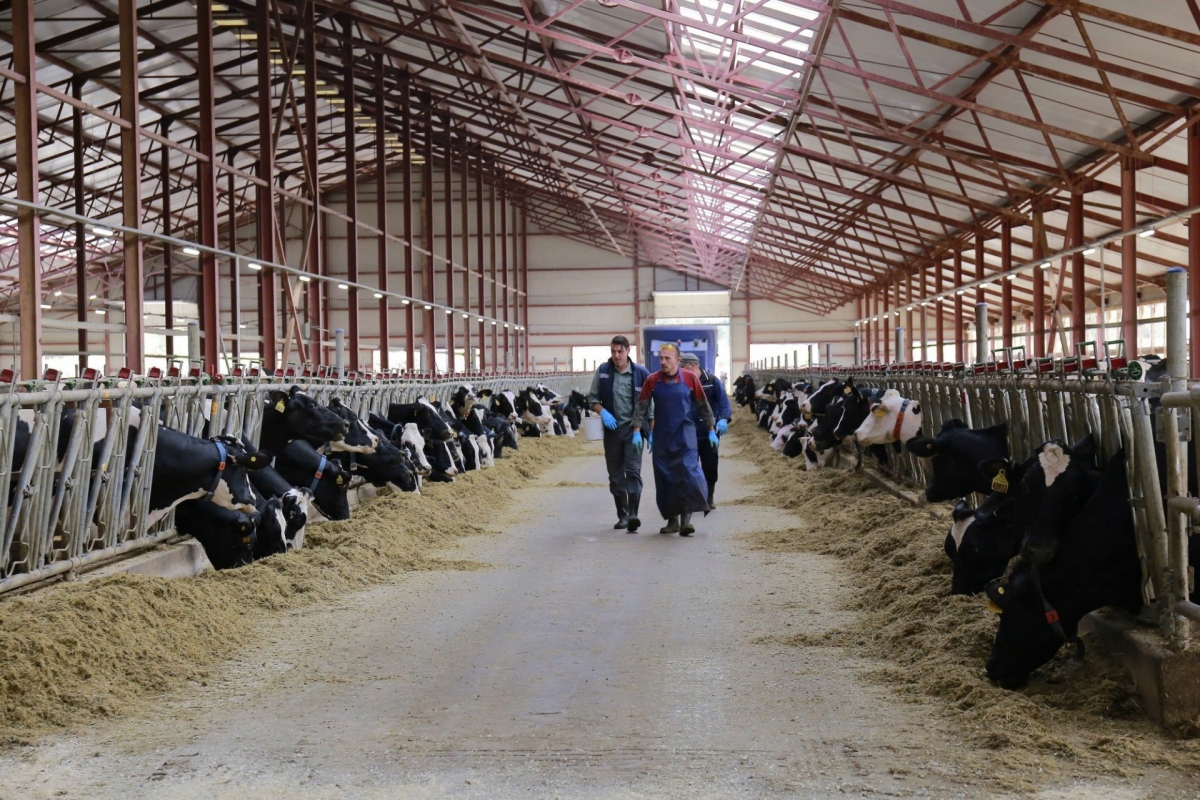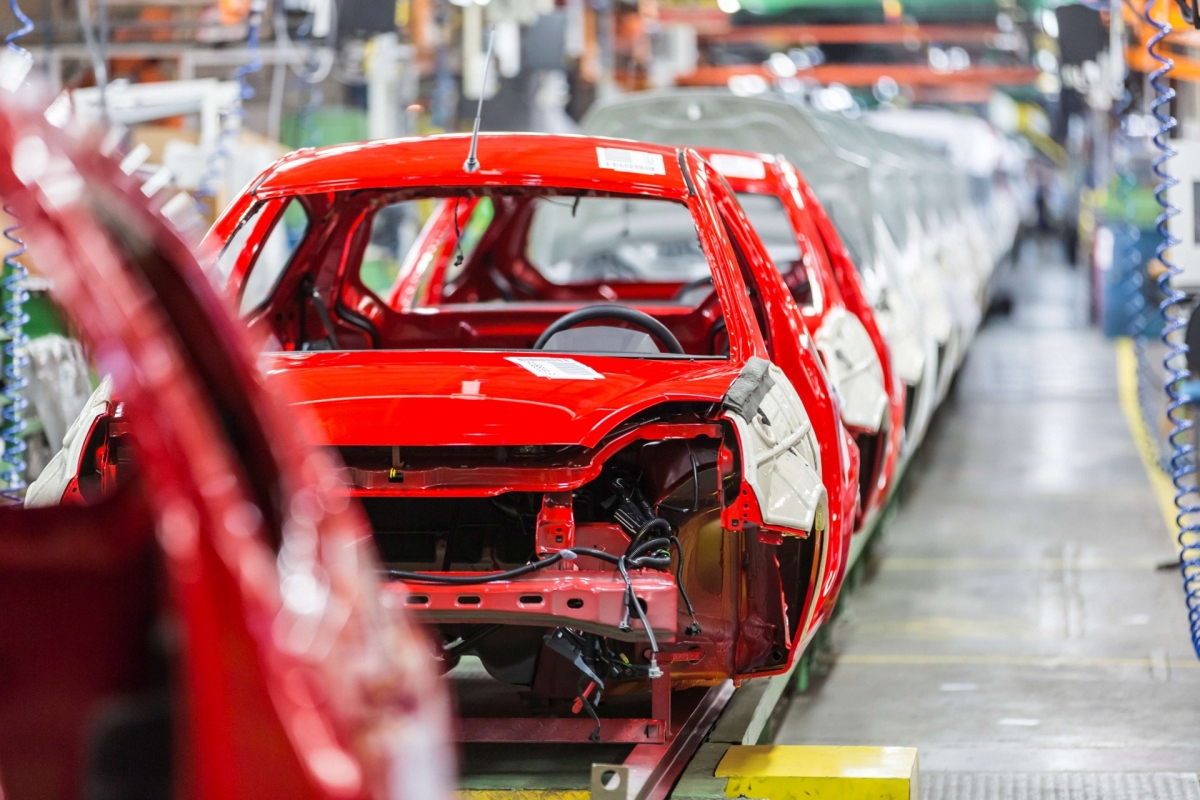INTERNATIONAL INVESTMENT
AND PORTAL
Boosting the circular economy and green transformation need to be a key driving force for society, but this requires more incentives on taxes, fees, and incentives.
At the Vietnam Circular Economy Forum last week in Hanoi, Dau Anh Tuan, deputy general secretary of the Vietnam Chamber of Commerce and Industry, said that incentive policies for green development had not been strong enough, with businesses struggling to develop in a circular direction.
“We now have regulations on emission quotas, but they are only limited to a number of industries. However, the difficulty is that each industry has its own regulations,” Tuan said. “So when the Ministry of Natural Resources and Environment requested ministries and branches to coordinate in developing their own industry norms, other ministries and branches have been left in a state of confusion.”
To ensure the development of a robust circular economy, Tuan said there needs to be a stronger connection between ministries and sectors regarding policies, a common government programme, and assistance from international organisations.
“The circular economy needs to start from specific issues, such as regulations on product design,” Tuan explained. “The EU market has issued regulations on eco-design. They are very specific, especially for textile products, which must be easy to recycle, save energy, and optimise their lifespan. We also need regulations for each specific item, and they must be easy to classify and synchronised to make the recycling process as simple as possible.”
Dr. Chana Poomee, director of Sustainable Development at cement group SCG, said implementing a circular economy is critical to sustainable growth and environmental resilience.
“Global challenges, such as extreme weather events, highlight the need to move from a linear model to a circular system to optimise resources and reduce waste,” Poomee said.
In the case of SCG, the group is focusing on investing in new technology, promoting renewable energy, transforming production processes, and developing green products. In the construction materials sector, the company installs waste heat recovery systems throughout its factories to meet 30 per cent of the demand for renewable energy, helping to reduce carbon emissions by one-fifth compared to conventional cement.
Meanwhile, SCG has produced bottle packaging made from high-quality recycled plastic, with bottle caps tightly attached to the bottle body to help reduce plastic waste.
Lam Du An, deputy general director in charge of production and technology at Saigon Beer-Alcohol-Beverage Corporation, said that in the process of implementing the circular economy, enterprises faced the greatest difficulty when it came to handling administrative documents.
“We want to cooperate with green carriers to reduce emissions, but because the circular economy is still relatively new in Vietnam, carriers have not met this requirement. Therefore, at the present stage, we are limiting suppliers who do not ensure emissions,” An said.
Le Thanh Tung, a member of the board at VietinBank, said that a major bottleneck many businesses were facing was the problem of accessing capital.
“Small- and medium-sized enterprises are typically interested in circular economy programmes, and are aware of the role of implementing related solutions. However, the conditions and ability to access capital for such enterprises is difficult,” Tung said. “There are several important factors that help banks and businesses to successfully implement new measures, such as more awareness, management cooperation, better technology, and skilled personnel.”
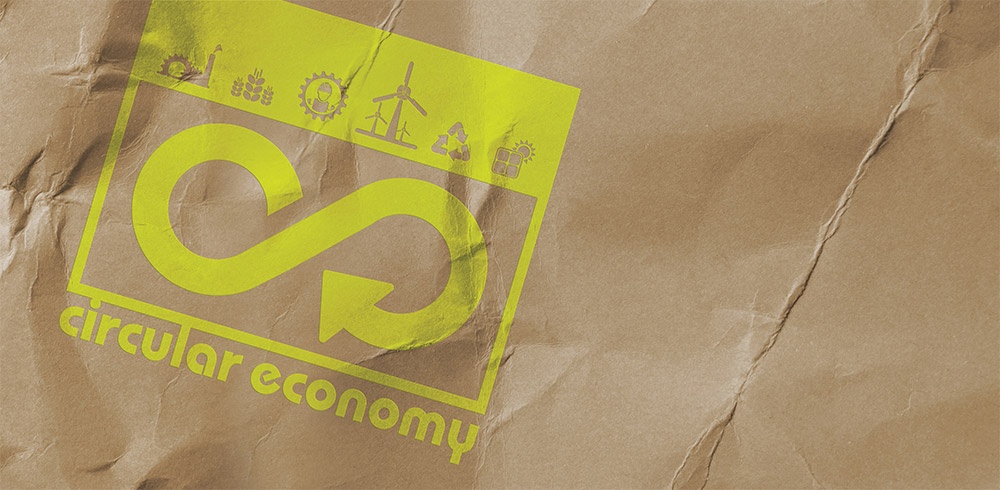
Tran Quy Kien, deputy Minister of Natural Resources and Environment

As an active and responsible participant in the fight against climate change, Vietnam has developed and issued policies to promote green transformation and green growth, achieving many positive results over the years.
Specifically, the Law on Environmental Protection includes legal regulations to promote the implementation of circular economy, which has been integrated into strategies, programmes, projects, planning, and development plans of sectors, fields, and localities. Development of the circular economy is part of the direction for national development.
The Ministry of Natural Resources and Environment is drafting a national action plan to implement the circular economy. This includes key groups of tasks and solutions on institutional creation, specifying the provisions in the 2020 law on the responsibilities of manufacturers and distributors; and project management in life cycles, establishing a roadmap for building and applying environmental standards, emphasising the cooperation of businesses to receive financial and technological support.
Implementing the circular economy is an inter-sectoral task and the responsibility of the whole of society. In which, the state plays the role in creating resources such as finance, research, development, technology transfer and equipment production, training resources, providing information platforms, and data, creating space for the process of transformation and circular economic models.
Organisations and individuals are the driving force of the circular economy. In particular, enterprises play a pioneering role in innovating business models, to form a bigger circular value chain. Innovation will contribute to realising the circular economy in Vietnam, creating a foundation to resolve the relationship between the economy and the environment, and between humans and nature.
Fleur Gribnau, first secretary for Economic Affairs Embassy of the Netherlands

In the Netherlands, developing a circular economy is a top priority. Currently, the country recycles up to 80 per cent of its waste and its raw material consumption is 20 per cent lower than the EU average.
We have been carrying out a comprehensive action plan to promote a circular economy, including major measures such as building legal frameworks to encourage businesses to apply circular business models, providing market incentives, facilitating innovation and knowledge sharing, and promoting international cooperation on the circular economy.
Vietnam and the Netherlands can further promote cooperation efforts in building a sustainable and circular economy. The first is to develop the private sector, which plays a decisive role. The active participation of businesses will be a key factor in implementing circular business models and protecting the environment. Therefore, creating an enabling environment for the private sector to develop is critical.
The second is to strengthen public-private partnerships. For example, in the plastics industry, Vietnam can establish such models to address the problem of plastic waste, a major challenge today.
They will not only facilitate for the public sector to closely cooperate with businesses, but also listen to and address the difficulties of businesses in applying circular economy solutions.
Finally, it is necessary to strengthen and improve financial issues. For example, the Netherlands launched the Dutch Circular Economy Innovation Fund to provide funding for innovation projects in this area, fill the financing gap and supports businesses in implementing effective circular solutions, thereby contributing to sustainable economic development.
Michael Siegner, resident representative Hanns Seidel Foundation Vietnam

We have been making efforts to promote circular economy in Vietnam for a long time as a foundation for the country’s sustainable development. With Vietnam’s action plan on circular economy development in the final stage, we see great potential to deepen and expand cooperation with Vietnam after the plan is approved.
Additionally, Vietnam needs to promote stronger cooperation between policymakers and the private sector, especially startups and small- and medium-sized enterprises (SMEs) in the process of developing a circular economy.
Moreover, Vietnam still lacks resources and networks for startups and SMEs to scale up and replicate circular business models. Startups in Vietnam are currently in dire need of peer-to-peer learning platforms, as there are currently few opportunities to connect, share experiences and learn from other businesses. Therefore, establishing national and regional platforms to address these needs will promote cooperation and replication of such business models in Vietnam.
Organisations in Vietnam can play an important role in creating and coordinating these platforms, providing the necessary support for startups and SMEs to develop. By addressing these challenges, we can tap into the potential to promote cooperation and innovation in the circular economy, not only in Vietnam but also across the ASEAN region.
 Competition focuses on fostering circular economy
Competition focuses on fostering circular economy
More than just a competition, “Plastic Circular Innovation Solutions 2024” held in Hanoi on October 22 brings many superior solutions to the journey of combating plastic waste in Vietnam.
 Addressing challenges in transition to circular economy
Addressing challenges in transition to circular economy
The shift towards a circular economy has become one of the most pressing global challenges. For companies that produce key elements crucial for the green transition, this shift presents both opportunities and hurdles.
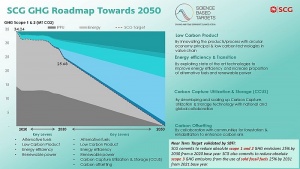 SCG promotes circular economy to drive economic growth
SCG promotes circular economy to drive economic growth
At the Vietnam Circular Economy Forum on December 10, Chana Poomee, chief sustainability officer of SCG Group, called for promoting the circular economy, especially expecting the approval of the National Action Plan for Circular Economy (NAPCE).
By Nguyen Thu


